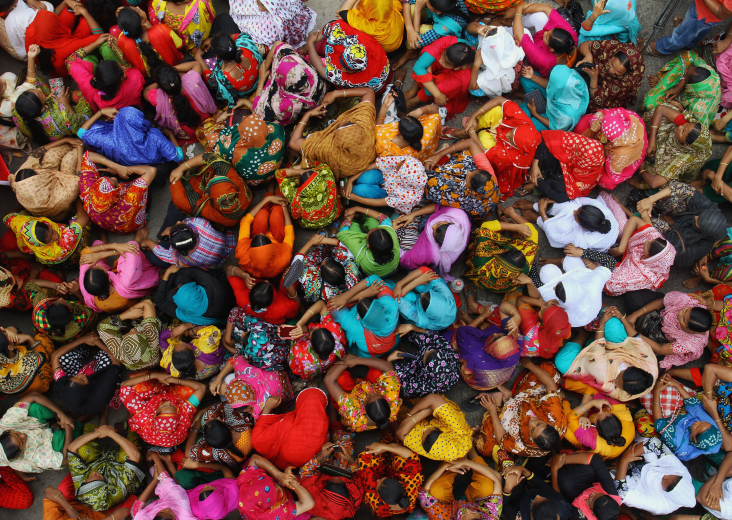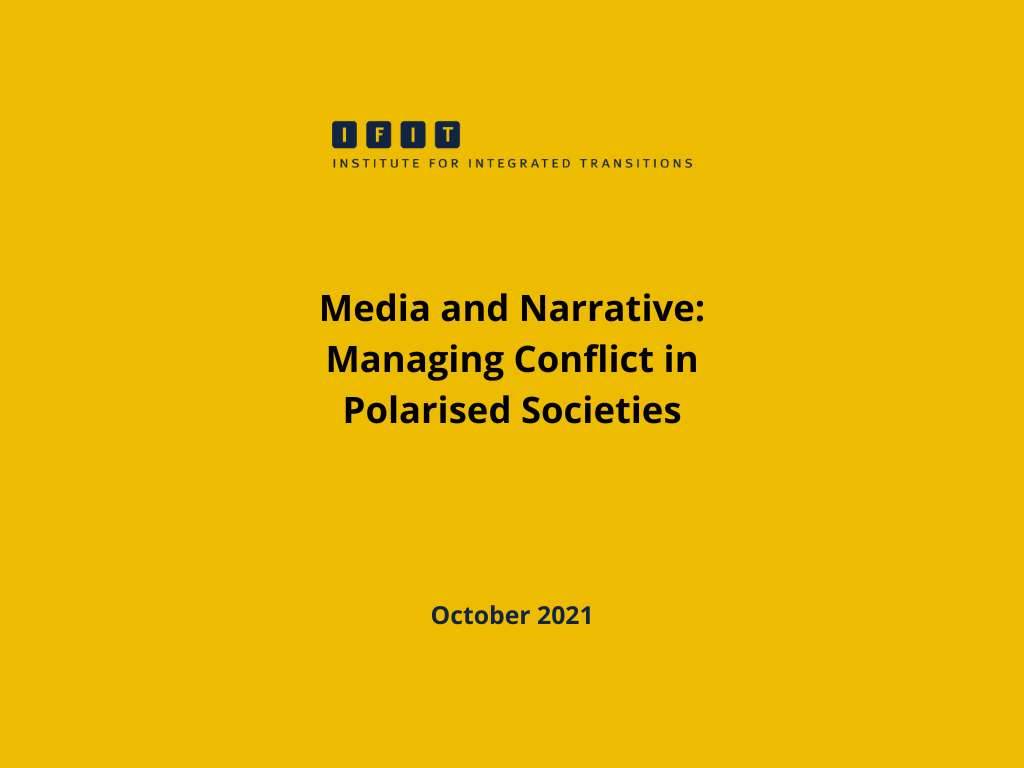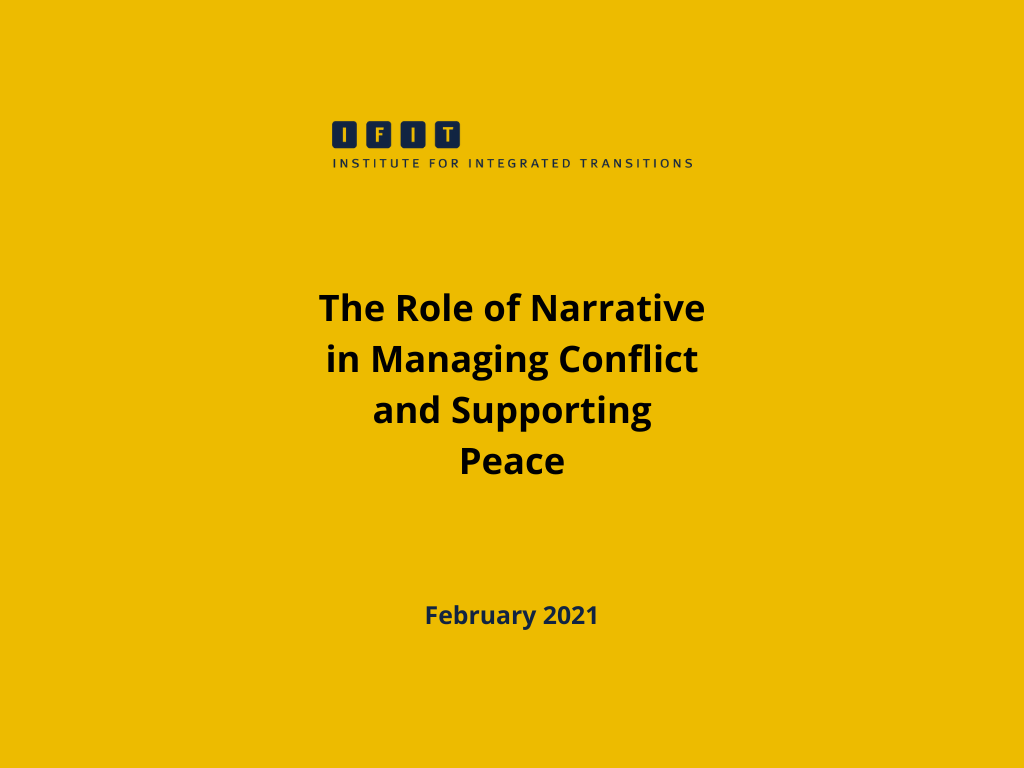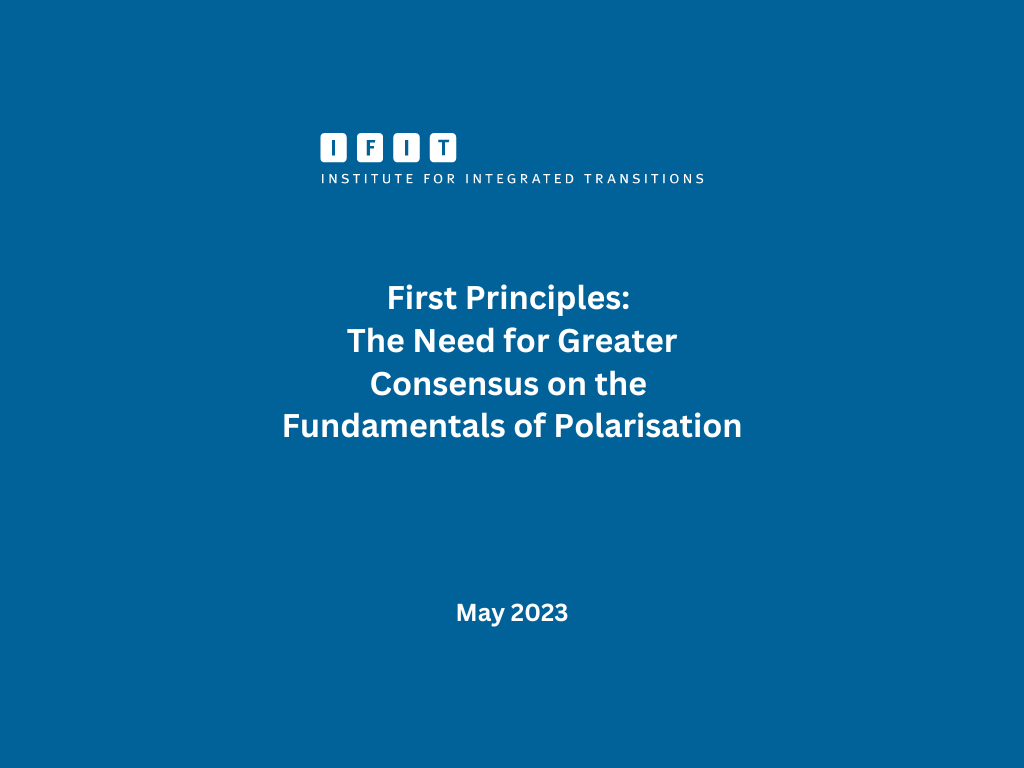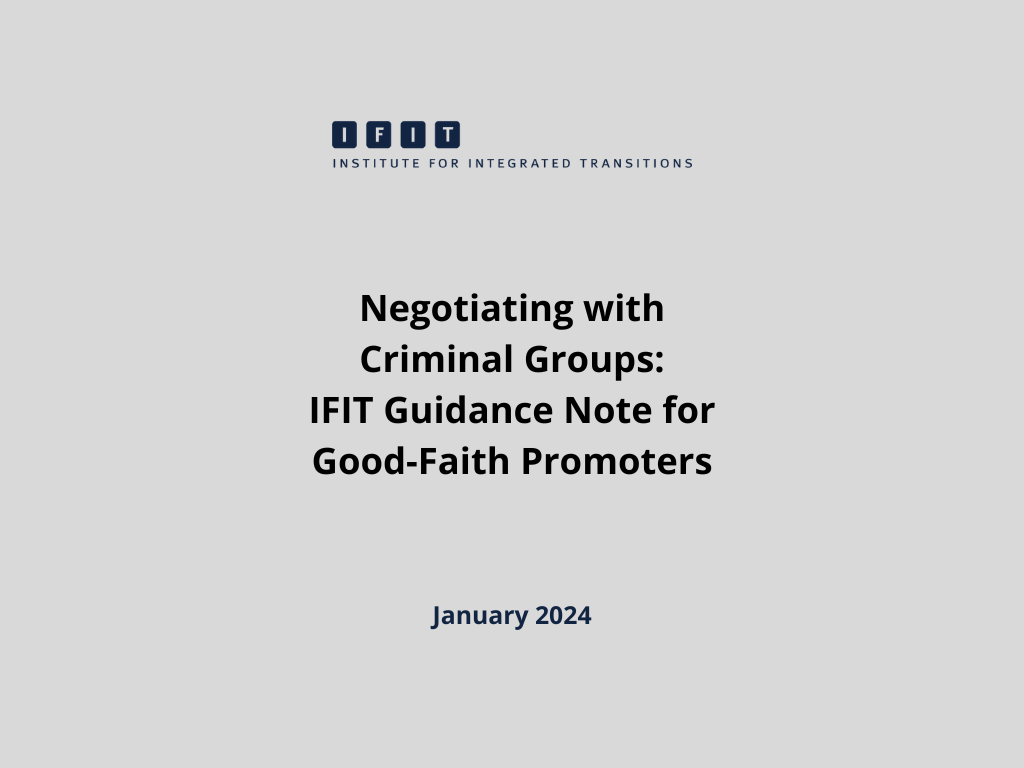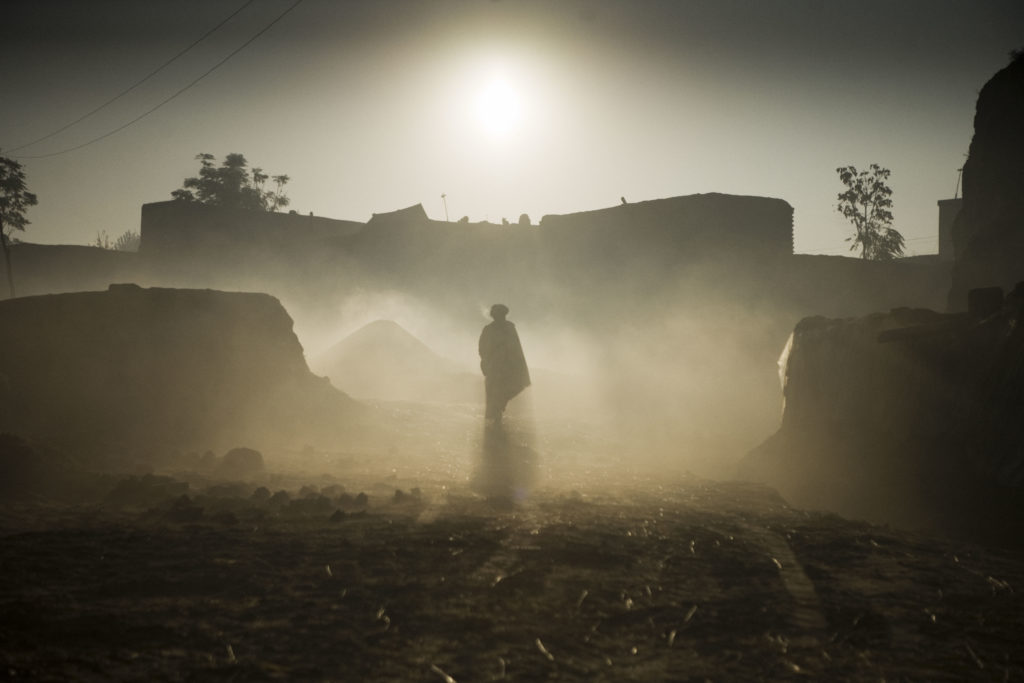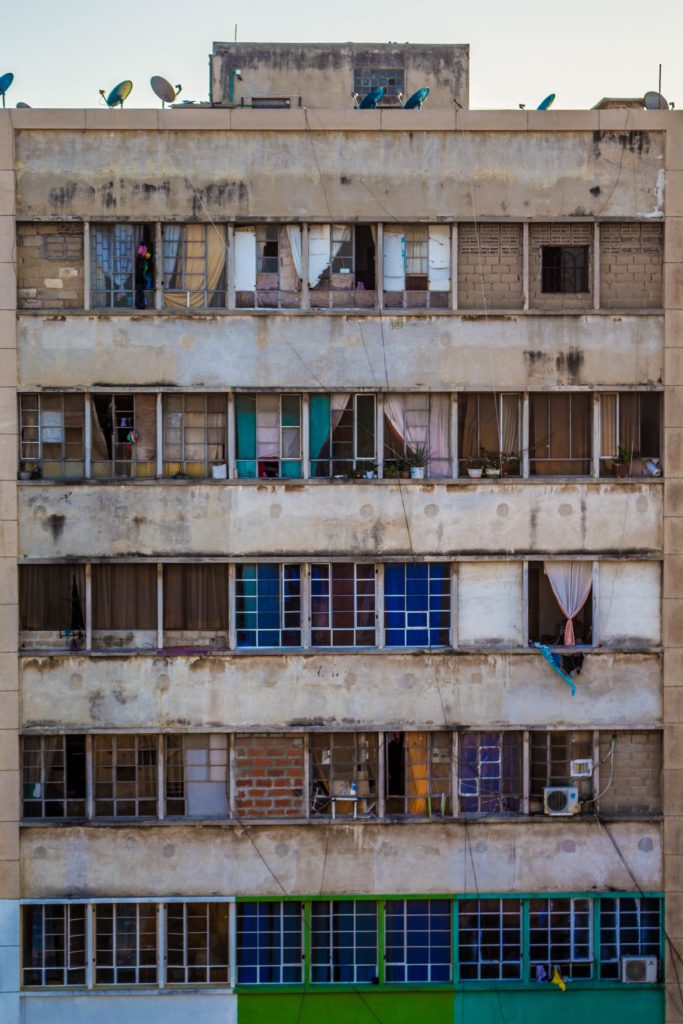Expert Team: Practice Groups
Dr. Jasmina Brankovic is a Research Associate with the Institute for Integrated Transitions (IFIT). Her research interests include narrative approaches to conflict management, socioeconomic transformation, climate justice, and civil society strategies for social change in transitional contexts, with a focus on participatory methods.
Jasmina is the co-author of Violence, Inequality and Transformation: Apartheid Survivors on South Africa’s Ongoing Transition (2020) and The Global Climate Regime and Transitional Justice (2018) and the co-editor of Advocating Transitional Justice in Africa: The Role of Civil Society (2018). She is the Senior Research Specialist at the Centre for the Study of Violence and Reconciliation, South Africa, and the Associate Editor of the International Journal of Transitional Justice. Jasmina has a PhD in Political Science from the University of Marburg.
Areas of expertise: transitional justice, violence prevention, climate justice, civil society strategies, participatory research, learning, monitoring and evaluation, Africa.
Working languages: English and Bosnian
You may also be interested in
Mariana Casij Peña is an Associate at the Institute for Integrated Transitions (IFIT) and manages the Law and Peace Practice Group and the Peace Treaty Initiative. She has led IFIT’s research on negotiating with violent criminal groups, supported the countering violent extremism project, and advised key stakeholders on transitional justice issues in contexts such as El Salvador, Nigeria, Ethiopia, the Gambia, and Libya. Additionally, for the past six years, she has overseen IFIT’s transitional justice work in Colombia.
Prior to joining IFIT, Mariana worked with the Presidential Advisor for Human Rights in Colombia and served as a legal adviser for the Victims Unit during the negotiations between the Colombian Government and the FARC, as well as during the subsequent implementation phase. She also worked for the Victims Unit on national cases of collective reparations and as a consultant for the Transitional Justice Directorate of the Colombian Ministry of Justice.
Mariana also previously taught at the Universidad Javeriana in Bogotá, Colombia, in areas of memory, transitional justice, and human rights.
She holds a BA in Law from the Universidad Javeriana and a Master’s degree in Human Rights and Democratisation from the European Inter-University Centre for Human Rights and Democratisation.
Her focus areas include transitional justice, amnesties, accountability, reparations and reconciliation.
Working languages: English, Spanish and French
You may also be interested in
Yasmin Sooka is a leading human rights lawyer and the Executive Director of the Foundation for Human Rights in South Africa. The Foundation is the country’s primary indigenous grant maker, established by President Mandela’s government in 1996 and the European Union to fund the human rights sector in South Africa. Sooka chaired the government’s Steering Committee of the National Forum Against Racism, Racial Discrimination, Xenophobia and Related Intolerances, which is responsible for developing a National Action Plan to combat racism in the country.
A leading international expert in the field of transitional justice, Sooka served on the South African Truth and Reconciliation Commission from 1996-2001 and chaired the committee responsible for the final report from 2001-03. She was appointed by the United Nations to serve on the Truth and Reconciliation Commission of Sierra Leone from 2002-04. She is also a member of the Advisory Body on the Review of Security Council Resolution 1325.
In July 2010, Sooka was appointed to the three-member Panel of Experts advising the Secretary General on accountability for war crimes committed during the final stages of the war in Sri Lanka. The report was published in May 2011. She published two additional reports on Sri Lanka in 2014. She is the co-author of “The Unfinished War: Torture and Sexual Violence in Sri Lanka: 2009-2014” with the Bar Human Rights Committee of England and Wales and the International Truth and Justice Project, Sri Lanka. Sooka is also the co-author of an interactive report, “Five Years On: The White Flag Incident 2009-2014”, with the International Truth and Justice Project, Sri Lanka.
In March 2014, Sooka co-authored the African Union’s Policy on Transitional Justice. She has also assisted many governments in setting up transitional bodies such as truth commissions and has advised on reparation programs. She has also consulted on issues of transitional justice and gender.
Sooka was also appointed by the Secretary-General to a three-member Panel of Experts to advise him on the UN response to allegations of sexual exploitation and abuse of children by foreign military forces not under United Nations command in the Central African Republic as well as abuse of power by UN officials in their responses to the allegations
Sooka has been part of many advisory missions on transitional justice for the United Nations including Afghanistan, Burundi, Kenya, Nepal, and Uganda. In addition, she has consulted for the Federal Department of Foreign Affairs in Switzerland, and has participated in several missions including to Burundi, Libya, and Tunisia. She also served as the Inaugural Soros Chair at the School of Public Policy at the Central European University in Budapest.
Working languages: English and Afrikaans
You may also be interested in
Tecla Wanjala is the Director of the Social Healing and Reconciliation Program of the Green String Network in Nairobi. Prior, she served as one of the Commissioners of the Truth, Justice and Reconciliation Commission Kenya (TJRC-Kenya). Moreover, she was the Relief and Rehabilitation Coordinator for victims of the ethnic and land clashes in 1991/1992 under the Catholic Diocese of Bungoma and the National Coordinator for the Peace and Development Network. She also acted as an in-house Consultant in Peace Building and Post Conflict Reconstruction with the Japan International Cooperation Agency for Eastern and Southern Africa.
Tecla holds a PhD in Peace and Conflict Studies from Masinde Muliro University of Science and Technology. She attained a Master’s degree in Conflict Transformation from the Eastern Mennonite University in Harrisonburg in Virginia and holds a diploma in Social Development Work from Embu Development Institute.
You may also be interested in
Professor Slye is a Professor of Law at the Seattle University School of Law. He is an internationally-recognised expert in international criminal law, transitional justice, and international human rights law, and is co-author of a best-selling casebook in the United States, International Criminal Law and Its Enforcement (Foundation Press). He taught in the clinical program at the Yale Law School and served as the Associate Director of the Orville H. Schell, Jr. Center for International Human Rights at Yale Law School.
Professor Slye has represented victims of human rights violations before US federal courts under the Alien Tort Claims Act, and before various UN human rights bodies. He has provided advice to countries in their efforts to address a legacy of gross violations of human rights, including Tunisia, Colombia, Burundi, and Uganda. He is a legal advisor and board member of the Documentation Center of Cambodia, which has addressed the legacy of the atrocities committed by the Khmer Rouge. He was a legal consultant to the South African Truth and Reconciliation Commission from 1996 to 2000. From 2009 to 2013, Professor Slye served as one of three international commissioners (and the only commissioner not from Africa) on the Kenyan Truth Justice and Reconciliation Commission.
Professor Slye received his B.A. from Columbia University, his M.Phil in International Relations from the University of Cambridge, and his J.D. from the Yale Law School.
You may also be interested in
As the former Diplomatic Correspondent specialised in humanitarian action and international justice for the daily newspapers Libération (Paris) and Le Temps (Geneva), Pierre Hazan has been a close observer of many conflicts, including in the former Yugoslavia, Rwanda, and the Middle East. As a Fellow at Harvard Law School (2005) and the United States Institute of Peace in Washington D.C. (2006), his published works include Justice in a Time of War (Texas A&M), Judging War, Judging History; Behind Peace and Reconciliation (Stanford University Press, 2010), and La Paix contre la Justice? (AVE/GRIP, 2010). He is also the editor of The Tenth Anniversary of the International Criminal Court, the Challenges of Complementarity (Politorbis, Swiss Ministry of Foreign Affairs, 2012).
In recent years, Pierre has collaborated with the United Nations Office of the High Commissioner for Human Rights. In 2013, he was also a U.N. expert with the Special Rapporteur in the field of cultural rights for two reports, respectively the Report on the writing and teaching of history (A/68/296) presented to the U.N. General Assembly in Autumn 2013 in New York, and the Report on memorialization processes (A/HRC/25/49) presented on 12 March 2014 at the Human Rights Council in Geneva.
Since 2014, Pierre has been a special advisor in Transitional Justice with the Centre for Humanitarian Dialogue. He is also a member of the International Contact Group of the Basque Country, co-organisers of the 2011 Peace Conference, which led to the end of political violence in the Basque Country. He also works with La Fondation Hirondelle, which creates or supports independent, civic-minded news media in conflict, post-conflict and crisis zones. Since June 2015, Pierre has been the head of a new media project, justiceinfo.net, which is dedicated to justice issues in societies in transition. Justiceinfo.net is a bilingual (English and French) media project of La Fondation Hirondelle in partnership with Oxford Transitional Justice Research (OTJR) and Harvard Humanitarian Initiative (HHI).
Pierre is currently a lecturer at the Geneva University of Art and Design, where he co-chairs a research project on Memories in Divided Societies. In January and February 2015, this research led to an exhibition in Geneva called “Beyond the Monument”. Pierre is an Associate Professor at the Academy of Journalism and Media, Neuchatel University and also lectures at the Geneva Center for Education and Training in Humanitarian Action (CERAH, Geneva University/Graduate Institute). In 2014, he led a weekly discussion of contemporary historical issues on the Swiss Broadcasting Company program Histoire Vivante. In 2016, he was invited to serve as the guest editor of The International Journal of Transitional Justice for a special issue on “Beyond Borders: Regional Dimensions and Dynamics of Transitional Justice”.
Working languages: French and English
You may also be interested in
Phil Clark is a Professor of International Politics at SOAS University of London. He specialises in conflict and post-conflict issues, including transitional justice, peacebuilding and reconciliation after mass atrocity in Rwanda, Uganda, the Democratic Republic of Congo and Burundi.
His most recent books are Distant Justice: The Impact of the International Criminal Court on African Politics (Cambridge University Press, 2018) – which was shortlisted for the Raphael Lemkin Award for best book on genocide and mass violence – and The Gacaca Courts, Post-Genocide Justice and Reconciliation: Justice without Lawyers (CUP, 2010). He is currently completing a book on welfare, post-genocide inequality and reconciliation in Rwanda, to be published by Hurst and Co. and Oxford University Press.
In addition to being a member of IFIT’s Law and Peace Practice Group, Professor Clark is a member of the UN advisory group on reconciliation. In 2014, he founded the Research, Policy and Higher Education (RPHE) programme through the Aegis Trust in Kigali – designed to support the Rwandan research community – and in 2007 co-founded and convened the Oxford Transitional Justice Research (OTJR) network at the University of Oxford.
His writing has appeared in The New York Times, Foreign Affairs, the Washington Post, the Guardian, Dissent, the East African, Prospect, Times Higher Education Supplement, the Australian and the BBC, CNN and Al Jazeera websites. He is a regular media contributor on the BBC, France 24, Al Jazeera, CNN, Deutsche Welle, TNT and Monocle 24.
Professor Clark has a DPhil in Politics from the University of Oxford, where he studied as a Rhodes Scholar.
Working languages: English and French
You may also be interested in
Louise Mallinder is a Professor of Law at Queen’s University Belfast, School of Law. Within her broad interests in international human rights law, international criminal law and law and politics in political transitions, Louise has a particular research interest and expertise in amnesty laws, the role of lawyers as transitional actors, and socio-legal research methods related to transitional justice. She has conducted fieldwork in numerous locations including Northern Ireland, Cambodia, Chile, South Africa, Israel, Palestine, Tunisia, Argentina, Uruguay, Uganda and Bosnia-Herzegovina. Her research has been funded by the Economic and Social Research Council, the Arts and Humanities Research Council, the Nuffield Foundation and the Socio-Legal Studies Association. In addition, Louise’s monograph was awarded the 2009 Hart SLSA Early Career Award and was jointly awarded the 2009 British Society of Criminology Book Prize.
Louise is also a member of the AHRC and ESRC Peer-Review Colleges and the Royal Irish Academy Ethical, Political, Legal and Philosophical Studies Committee. In addition, Louise is the Chair of the Committee on the Administration of Justice, a human rights non-governmental organisation in Northern Ireland.
You may also be interested in
Leigh A. Payne is Professor of Sociology and Latin America at St Antony’s College, University of Oxford. She is the author of a number of books, book chapters, and articles on transitional justice.
Among her publications in the last five years are: Confessions to Intimate Violence: FARC Confessions to Sexual Violations in the Colombian Conflict (2024); The Right against Rights in Latin America (2023); Understanding Collaborators (2022); Disappearances in the Post-Transition Era in Latin America (2021); and Transitional Justice and Corporate Accountability from Below: Deploying Archimedes’ Lever (2021). She is also the co-author of Transitional Justice in Balance and the co-editor of Amnesty in the Age of Human Rights Accountability.
Based on her research findings, Payne has been involved in numerous academic-practitioner impact projects around the world. For her academic research and policy impact work, she has received grants from foundations including Open Society, Ford, Oak, Newton, and Zennström. She has also received funding from research councils, including the Economic and Social Research Council (UK), Arts and Humanities Research Council (UK), British Academy, and National Science Foundation (US).
Professor Payne received her PhD in Political Science at Yale University.
Working languages: English, Spanish and Portuguese
You may also be interested in
Iván Orozco is an Associate Professor in the Department of Political Science at the Universidad de los Andes (Bogotá). He is a specialist in constitutional law and legal theory, and has a PhD in political science from the University of Mainz.
As an academic, Orozco has worked at the following universities: the Andes, the National, Kassel, Augsburg and Notre Dame.
Orozco has written several books that have had a major influence on Colombian law and politics. These include “Fighters, Rebels and Terrorists”, “War and Law in Colombia”, “The Limits of the Humanitarian Conscience”, and “Transitional Justice in a Time of Obligatory Memory “.
In June 2013, the Colombian Office of the High Commissioner for Peace hired Orozco to serve as an expert adviser to the government delegation to the peace negotiations with the FARC taking place in Havana. He served in that role until December 2015, when a final agreement was reached on the issue of Victims (point 5 of the negotiation agenda).
Prior to his work on the process, Orozco also served in other public policy positions, including as head of the human rights office of Gustavo Bell when he was Vice President of Colombia, and as a member of the Historical Memory Group.
Working languages: Spanish, English, German
You may also be interested in
